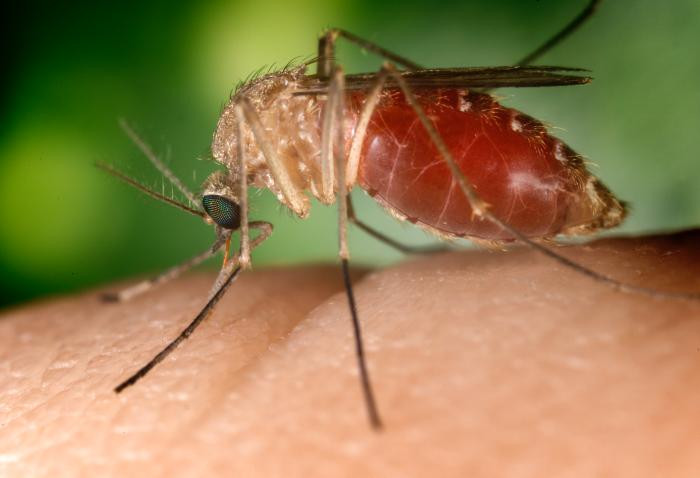
Elephantiasis, or lymphatic filariasis, is an infection that can cause swelling, most often in the legs but also in the arms breasts and genitalia and hard thick skin. There has been an outbreak of it in Mashonaland West province.
Cases of the disease have been reported in Kariba and Mhondoro Ngezi. The outbreak was discovered after some pupils showed signs of the illness in rural Kariba.
According to the World Health Organisation, lymphatic filariasis, or elephantiasis as it is known, is a serious threat to approximately 406 million people in the African region.
Worldwide it affects more than 120 million people in 72 countries throughout the tropics and sub-tropics of Asia, Africa, the Western Pacific and parts of the Caribbean and South America.
Elephantiasis is caused by a thread-like parasitic worm that is transmitted by mosquitoes. The infection is usually acquired in childhood but the painful and profoundly disfiguring disease often occurs later in life.
Symptoms
Acute or short-term symptoms of elephantiasis may include redness, warmth, swelling and pain in the affected areas.
Most infected people do not have any noticeable symptoms, although the infection can still harm their lymph system and kidneys.
- ICT props rural chicken farmer, but…
- Malaria deaths worry govt
- Worry as elephantiasis outbreak hits Zim
- Govt grilled over elephantiasis outbreak response
Keep Reading
In people who develop symptoms, it can lead to swelling, known as lymphedema. It usually occurs in the legs but the arms, breasts or genitals can be affected too. In men, the scrotum may swell up. This is called hydrocele.
Elephantiasis stops the immune system from working properly. This can lead to repeated skin infections, which can make the skin hard and thick.
In some rare cases, elephantiasis can cause a cough, shortness of breath and wheezing.
Causes
Elephantiasis is caused by a parasite that is transferred through mosquito bites. When a mosquito bites an infected person, it becomes infected with the parasite. The mosquito can then transfer the infection to healthy people.
If you are bitten by an infected mosquito, tiny larvae can enter your body and travel to your lymph system, where they develop into adult worms.
Male worms can grow to about three to four centimetres in length and female worms to eight to 10 centimetres. The male and female worms work together to form “nests” in the human lymphatic system.
The worms can live for six to eight years and produce millions of small larvae that circulate in the blood.If left untreated, these obstructions can cause the gross enlargement of the legs, arms, breasts and genital organs that commonly characterise elephantiasis.
The condition has devastating effects on the quality of life of those infected and has an impact on them not only physically but also emotionally and economically.
Most people are usually infected with the disease in childhood, but do not develop symptoms until later in life.
It usually takes many mosquito bites over several months or years in an area where the disease is common for a person to become infected. It is rare to become infected after visiting an area where it occurs for only a short time.
Diagnosis
Elephantiasis can be diagnosed with a blood test. However, even if someone has the disease, test results may be negative. This is because the swelling may not start until many years after infection.
Sometimes an ultrasound of the lymphatic system can be used to find adult worms moving around.
Complications
Elephantiasis can be challenging. The symptoms of elephantiasis can cause disability. This may not only affect your physical health, but can also bring emotional, social and financial challenges.
Treatment
If you or someone you know has been infected, treatment can be provided through medicine that can kill the worms. However, by the time elephantiasis develops, it is usually too late for this treatment.
If you have elephantiasis-like swelling, speak to your doctor or healthcare provider about seeking help from a lymphedema therapist, who can provide specialised care and exercises to manage your swelling.
If you have a swollen scrotum, your doctor may recommend surgery as part of your treatment.
Prevention
Avoiding mosquito bites is the best form of prevention. If you live in or travel to an area where the disease is common, look for solutions that can help prevent mosquito bites such as sleeping under a mosquito net, especially during the evening and early morning hours when mosquitoes are most active.
Wear long-sleeved shirts and long trousers to cover your skin. Use mosquito repellent on any exposed skin.
If you have already developed elephantiasis, you can prevent the swelling from becoming worse by keeping the area clean, washing it with soap and water every day. You should elevate a swollen leg or arm to drain the fluid.
Performing some specific exercises can get the fluid moving. You can ask your doctor or healthcare provider to refer you to a physiotherapist for help with lymphatic drainage.
Wear shoes that fit the size of your foot to protect your foot from injury. You can also make use of antibacterial or antifungal cream on any wounds there may be.
- The information in this article is provided as a public service by the Cimas iGo Wellness programme, which is designed to promote good health. It is provided for general information only and should not be construed as medical advice. Readers should consult their doctor or clinic on any matter related to their health or the treatment of any health problem. — igo@cimas.co.zw or WhatsApp 0772 161 829 or phone 024-2773 0663.






